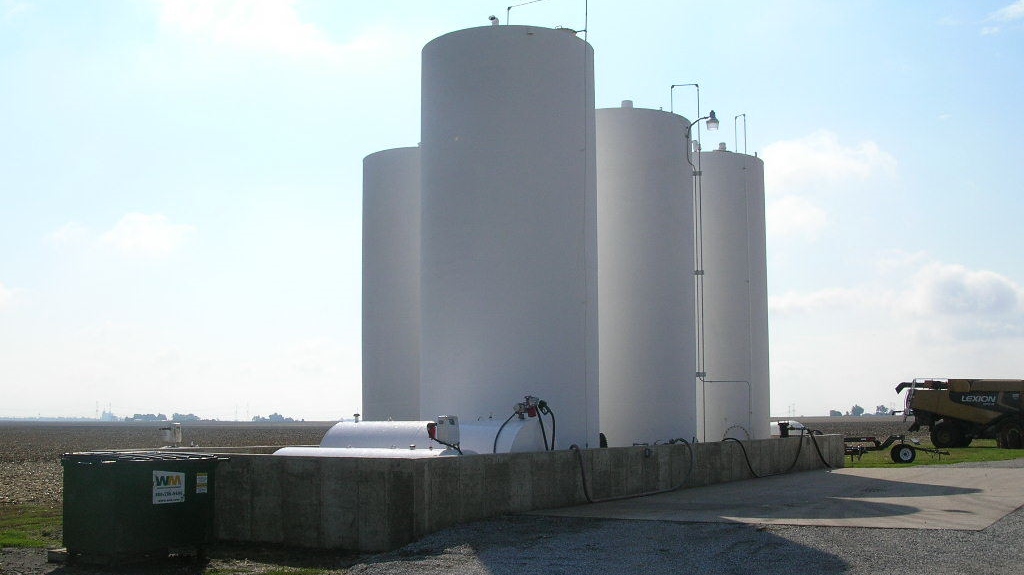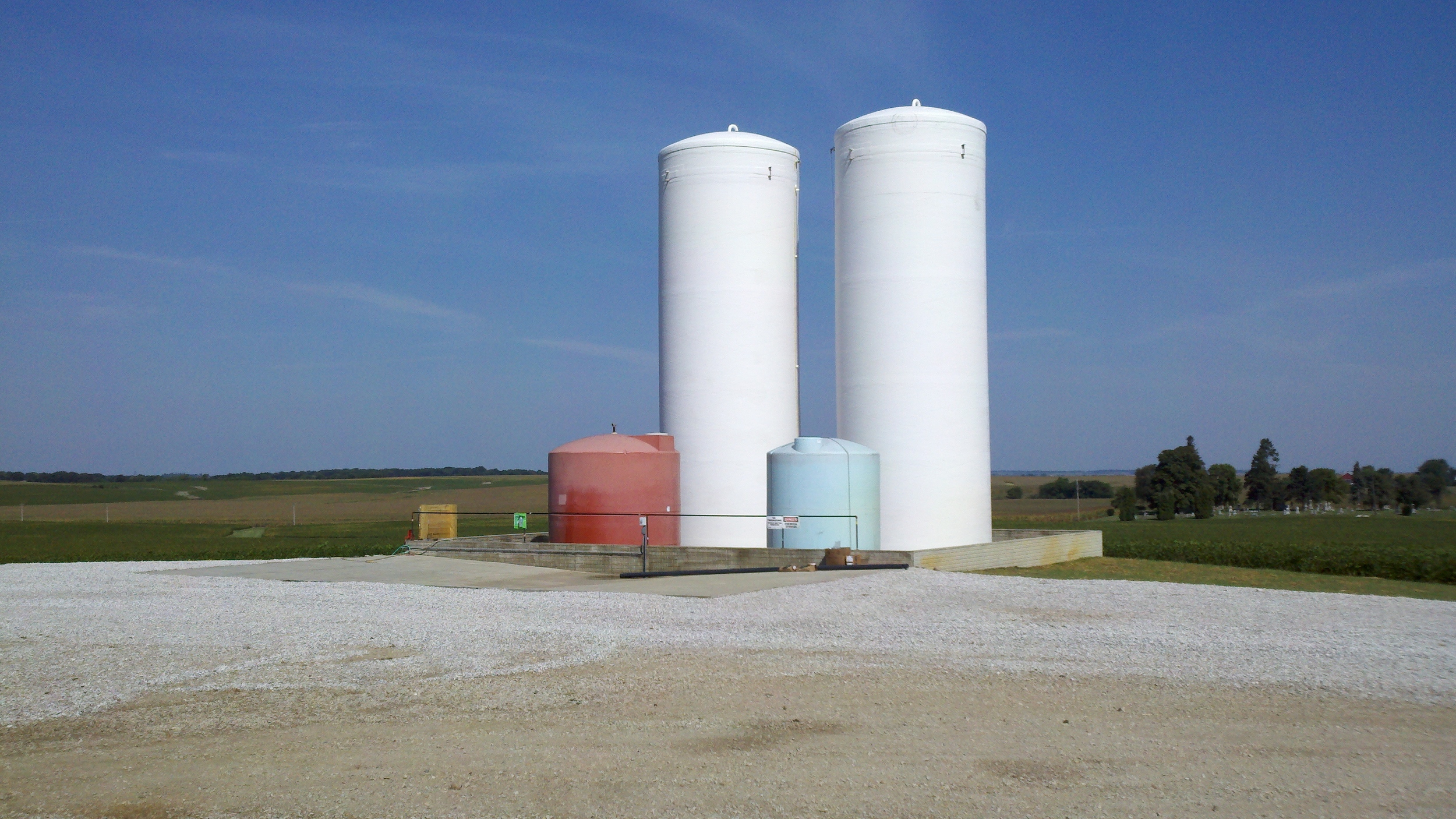agrichemical handling facilities
Our team has experience with multiple types of agrichemical handling and storage facilities. MSI offers the convenience of contracting with one firm that can meet your engineering, surveying, and environmental needs. Our team approach of diverse licensed professionals enables MSI to provide the expertise necessary to assist clients in achieving their goals of regulatory compliance.
FACTS & TERMINOLOGY
All pesticide and fertilizer facilities over a certain size, or that handle over a certain amount of these products, are required to utilize containment systems such as diking and loading pads to protect against the unintended release of these materials. Both commercial and non-commercial facilities are affected by the requirements and are defined as follows:
Commercial Agrichemical facility
A site used for commercial purposes, where bulk pesticides are stored in a single container in excess of 300 gallons of liquid pesticide or 300 pounds of dry pesticide for more than 30 days per year, or where more than 300 gallons of liquid pesticide or 300 pounds of dry pesticide are being mixed, repackaged, or transferred from one container to another within a 30-day period, or a site where bulk fertilizers are stored, mixed, repackaged, or transferred from one container to another.
Non-commercial agrichemical facility
A site, including the land and structures and equipment fixed thereon, designed and used for each of the following activities:
1. Storing pesticides or fertilizer for more than 45 consecutive days in a single container holding in excess of:
300 gallons bulk liquid pesticides; or
300 pounds bulk dry pesticides; or
5,000 gallons bulk liquid commercial fertilizer; or
50,000 pounds bulk dry commercial fertilizer
2. Loading and mixing, including bulk repackaging, of pesticides or fertilizer at a permanent site for more than a 45 day period in quantities in excess of:
300 gallons bulk liquid pesticides; or
300 pounds bulk dry pesticides; or
5,000 gallons bulk liquid commercial fertilizer; or
50,000 pounds bulk dry commercial fertilizer
3. The non-commercial application of pesticides or fertilizer.
Owners or operators of facilities subject to the regulations must register with the Illinois Department of Agriculture's Bureau of Environmental Programs and apply for and receive a permit for the construction and operation of a containment facility. Compliance assistance relative to the permitting process as well as containment design suggestions is available from department staff upon request. Permit application forms are available from the department's web site. Complete copies of the regulations as well as the Illinois Pesticide Act are also available from the department.
On-farm agrichemical handling facilities
FACTS & TERMINOLOGY
Containment for On-Farm Storage of Agrichemicals
Regulations regarding the proper storage and handling of bulk pesticides and fertilizers were modified in 2002 to require secondary containment of certain on-farm storage containers. The original rules, effective in 1990, only affected commercial and very large non-commercial facilities. The 2002 amendments to the regulation created a new facility type called "on-farm storage facility" and require that the owners and operators of such facilities provide secondary containment structures and systems to ensure that stored products would not be released to the environment in the event of a storage container failure.
On-Farm Storage Facility
An "on-farm storage facility" is defined as a permanent site that is designed and used for the non-commercial storage of pesticides or fertilizers for more than 45 consecutive days in a single, non-mobile container that exceeds the following capacities:
300 gallons of bulk liquid pesticides; or
300 pounds of bulk dry pesticides; or
5,000 gallons of bulk liquid fertilizer; or
50,000 pounds of bulk dry fertilizer
In addition, to qualify as an on-farm storage facility, a site must not be used for commercial purposes or would not meet the entire definition of a non-commercial agrichemical facility which includes the mixing and loading of agrichemicals for more than a 45 day period and the non-commercial application of pesticides and fertilizers.
SERVICES OFFERED
Planning and design of agrichemical storage secondary containments and spill prevention and mitigation procedures
Preparation of State permitting documents requiring a licensed Professional Engineer


